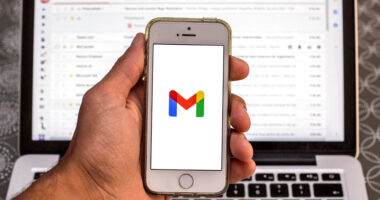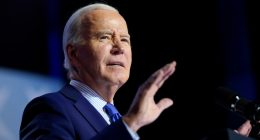
WASHINGTON—The White House nominated Jessica Rosenworcel to lead the Federal Communications Commission and Gigi Sohn as a commissioner on the five-member body, filling two vacancies that had hobbled the telecom regulator for months.
A lawyer by training, Ms. Rosenworcel has been serving as acting chief of the commission during the Biden administration. A Democrat, she began serving as a commissioner in 2012 after stints as an FCC and Senate staffer. She returned to the commission again in 2017 after her previous term lapsed.
Both new posts will require Senate confirmation.
Ms. Sohn served as counselor to former FCC Chairman Tom Wheeler and led Public Knowledge, a public-interest group that advocates for stronger antitrust enforcement. She has enjoyed strong support from key progressive policy makers in the Biden White House.
Ms. Rosenworcel often pushes for stronger industry oversight than her Republican predecessor, though the telecom and media companies under her purview this year have rarely complained about regulatory overreach. As commissioner, she sided with Mr. Wheeler on all but a few major policies, balancing pressure from both technology and telecom companies.
Ms. Rosenworcel enjoys strong support from Democrats in Congress, according to people familiar with the matter, though her confirmation process could face procedural hurdles. Her term on the commission is set to expire in January, but the Senate’s mounting obligations could delay the approval process, forcing the chamber to renominate her to the commission.
Representatives of the White House and the FCC declined to comment. Ms. Rosenworcel and Ms. Sohn didn’t immediately respond to requests for comment. In a statement, Ms. Rosenworcel noted that during her tenure on the FCC she had “fought to combat illegal robocalls and enhance consumer protections in our telecommunications policies.”
Former FCC Commissioner Michael Copps said Ms. Rosenworcel is noteworthy for the “unprecedented breadth and depth of experience” she brings to the commission. Ms. Rosenworcel worked for Mr. Copps as a staffer and has extensive experience in Congress, which oversees the independent commission.
Ms. Rosenworcel, if confirmed, will likely face calls from Democrats to restore so-called net-neutrality rules, which require that internet service providers treat content crossing their networks equally.
During the Obama administration, Mr. Wheeler imposed net-neutrality protections over telecom-industry objections in 2015. The commission led by Trump-appointed Chairman Ajit Pai later repealed the regulations. Ms. Rosenworcel has favored such rules and spoke against the Trump-era repeal.
A Senate-passed infrastructure bill, now pending in the House, would also push the FCC to develop rules around how internet providers disclose information about their offerings, much like nutrition labels.
The agency plays a crucial role expanding internet service to the tens of millions of Americans who don’t have it, including by developing maps of where service is lacking, doling out billions of dollars in subsidies for new networks and administering federal broadband benefits for low-income Americans.
At the same time, federal infrastructure legislation under consideration on Capitol Hill has curbed some of the commission’s authority. The bill would put the National Telecommunications and Information Administration, rather than the FCC, in charge of a more than $42 billion broadband grant program divided among state governments, a sign of the commission’s waning influence of late.
The White House on Tuesday nominated Alan Davidson, a senior adviser at the Mozilla Foundation, to run the NTIA. That agency, a unit of the Commerce Department, will have wide latitude over the government’s potential broadband-grant program as well as other decisions that influence how the FCC regulates cellphones, satellites and other wireless devices.
Write to Drew FitzGerald at [email protected] and Ryan Tracy at [email protected]
Copyright ©2021 Dow Jones & Company, Inc. All Rights Reserved. 87990cbe856818d5eddac44c7b1cdeb8







